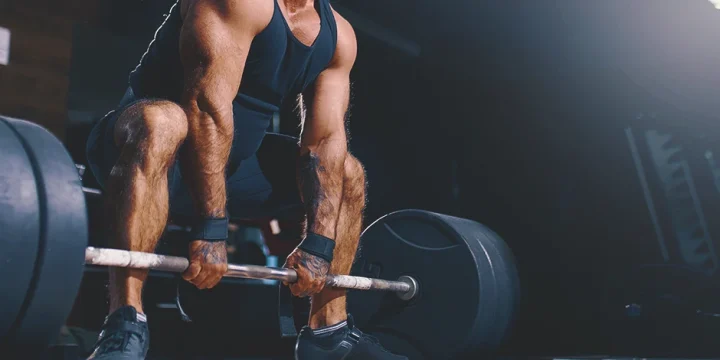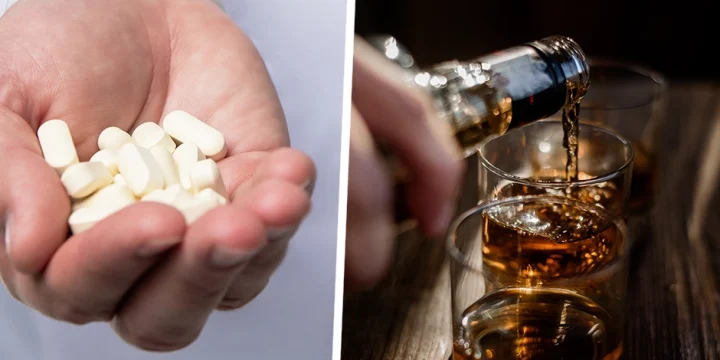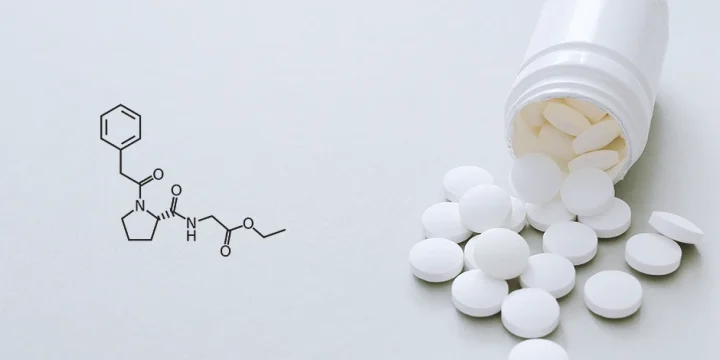In my coaching experience, I discovered that regular alcohol consumers are one of the most challenging client categories to deal with, as their bodies often seem too hard to sculpt.
They need to work twice as hard to melt body fat and gain muscle - which can point to low testosterone levels. Moreover, alcohol and testosterone are known to don’t go well together,
So, I decided to spend a few days reviewing relevant literature on the subject, and then I spoke with my physician to discuss the effects alcohol might have on testosterone levels.
Here’s what I know.
Quick Summary
- Alcohol consumption negatively impacts testosterone levels by disrupting hormonal functions and gland activities essential for testosterone production.
- Regular alcohol intake, even in moderate amounts, can lead to a significant decrease in testosterone levels, affecting muscle mass, sex drive, and overall health.
- As shown in a 2019 study published in the Journal of Clinical Medicine, testosterone levels in healthy men dropped significantly within just three days of consuming 16 oz of whiskey daily for 30 days.
- In my personal opinion, moderating alcohol intake and focusing on a healthy lifestyle can significantly improve testosterone levels and overall well-being.
How Can Alcohol Affect Testosterone?

Alcohol can negatively affect testosterone by disrupting the function of hormones and glands essential for its production, specifically the hypothalamus, anterior pituitary gland, and testes.
In my coaching experience, I've seen clients' testosterone levels improve noticeably once they reduced their alcohol intake.
The Chain of Action
The hypothalamus releases gonadotropin-releasing hormone (GnRH) that acts on your pituitary gland.
Then, the pituitary gland releases follicle-stimulating hormone (FSH) and luteinizing hormone (LH). Lastly, as a response to FSH and LH, the testes produce testosterone (the primary male sex hormone) [1].
Basically, alcohol impairs testosterone synthesis by interfering with all three glands (e.g., damaging Leydig cells in the testes, the part where testosterone is produced) [2].
Furthermore, when you drink and your liver metabolizes ethanol (alcohol), the amount of the coenzyme NAD+, responsible for testosterone production, decreases. It happens because NAD+ prioritizes aiding alcohol metabolism rather than testosterone synthesis, according to the NIAAA.
“Heavy alcohol use can suppress your brain and testicular function and lower testosterone over time, as well as sperm counts.”
- Joshua Calvert, M.D., Urologist
Indirect Hormonal Interference

Excessive drinking can also release certain endorphins, which indirectly interfere with testosterone levels.
The same goes for the stress hormone cortisol. According to the Journal of Sports Science and Medicine, cortisol increases with alcohol consumption and hence decreases testosterone synthesis [3].
Also, chronic alcohol abuse may disrupt your sleep schedule and increase the conversion of testosterone to estrogen in the body.
Lastly, drinking alcohol may also make androgen replacement therapy ineffective or even harmful. A 2021 BMC Gastroenterology study highlights that in conditions like hepatitis B virus-related acute-on-chronic liver failure, testosterone levels below 142.39 ng/dL are associated with greater disease severity and poorer outcomes, underscoring the complexities of managing such health issues [4].
Alcohol, therefore, can cause both short-term and long-term changes in testosterone levels, depending on the amount and consistency of alcohol consumption.
How Much Is Too Much?

When you determine how much you’re actually drinking, it should become more evident whether alcohol is affecting your testosterone levels. In my practice, I've seen even moderate drinkers experience testosterone improvements when they cut back.
If you’re not sure how to quantify and categorize your alcohol consumption, some guidelines can help you out [5].
According to the Centers for Disease Control and Prevention (CDC), there are two following categories:
- Moderate drinking - Two drinks or less daily for males and one drink or less for females are considered moderate alcohol intake.
- Heavy drinking - Fifteen or more drinks per week for males or eight or more per week for females constitute alcohol abuse.
Remember, alcoholic drinks have varying alcohol percentages, so moderation is key.
However, even moderate drinking can affect testosterone levels, with a study from the Alcohol, Clinical, and Experimental Research journal showing a drop in testosterone as soon as 30 minutes after consumption [6].
"Alcoholism is a big factor that people do not think about a lot when dealing with low testosterone."
- Luma Ghalib, M.D.
A 2019 study published in the Journal of Clinical Medicine found that when healthy men consumed 16 oz of whiskey daily for a month, their testosterone levels started dropping significantly by the third day. By the end of the month, these levels were comparable to those in men with alcoholism [7].
In a study published in the International Journal of Andrology, heavy alcohol consumption was linked to reduced testicular function [8].
Among heavy drinkers (over 80 g/day), only 36.4% had normal spermatogenesis, in contrast to 81.3% of non-alcoholic controls. Furthermore, heavy drinkers showed increased rates of spermatogenic arrest (52.3%) and Sertoli cell-only syndrome (11.4%), highlighting the significant negative impact of alcohol on male reproductive health.
How to Fix the Damage and Enhance Testosterone Production?

To fix the damage and enhance testosterone production, one of the first things you should do is avoid foods that kill testosterone and alcohol intake altogether.
I've guided many clients through an alcohol detox, and the positive impact on their testosterone levels and overall health is often remarkable.
Taking a break from alcohol allows your liver to recover and helps you observe how your body responds. Notably, a study on mice showed that the damage alcohol causes to the male reproductive system can be reversed after ten weeks of abstaining [9].
Further research is needed to determine the rate and extent of testosterone level recovery in men after they stop drinking.
It's important to note that alcohol consumption generally lowers testosterone synthesis, and men with already low or average testosterone levels may experience negative symptoms [10].
The most common symptoms are:
- Erectile dysfunction
- Lower sperm count
- Reduced sex drive
- Low Energy
- Depression
- Decreased muscle mass and strength
So, after you’ve ditched alcohol, the next thing you should do is adopt an overall healthy lifestyle - eating a balanced diet, exercising regularly, getting adequate sleep, and avoiding junk food are the recommended ways to increase testosterone naturally.
On top of that, I always advise my clients to include a T-booster in the mix. These products showed some very good results in replenishing levels overall, especially during the ‘recovery’ phase.
Related: Does Spearmint Tea Lower Testosterone?
FAQs
Can Alcohol Increase Testosterone?
Alcohol can’t increase testosterone, and it’s known that the relationship between alcohol and testosterone is antagonistic. Alcohol decreases blood testosterone in men due to an effect on testicles and other glands.
Does Alcohol Increase Estrogen in Males?
Alcohol does increase estrogen in males in cases of heavy drinking. It’s documented that chronic drinking increases the conversion of testosterone to estrogen and increases stress hormone levels, which can also affect testosterone negatively.
References:
- https://www.endocrine.org/patient-engagement/endocrine-library/hormones-and-endocrine-function/reproductive-hormones
- https://www.tandfonline.com/doi/full/10.1016/j.aju.2017.12.004
- https://www.ncbi.nlm.nih.gov/pmc/articles/PMC3880087/
- https://bmcgastroenterol.biomedcentral.com/articles/10.1186/s12876-021-01993-1
- https://www.cdc.gov/alcohol/fact-sheets/alcohol-use.htm
- https://pubmed.ncbi.nlm.nih.gov/12711931/
- https://www.ncbi.nlm.nih.gov/pmc/articles/PMC6571549/
- https://pubmed.ncbi.nlm.nih.gov/7744508/
- https://www.ncbi.nlm.nih.gov/pmc/articles/PMC3739141/
- https://medlineplus.gov/ency/patientinstructions/000722.htm
About The Author
You May Also Like






